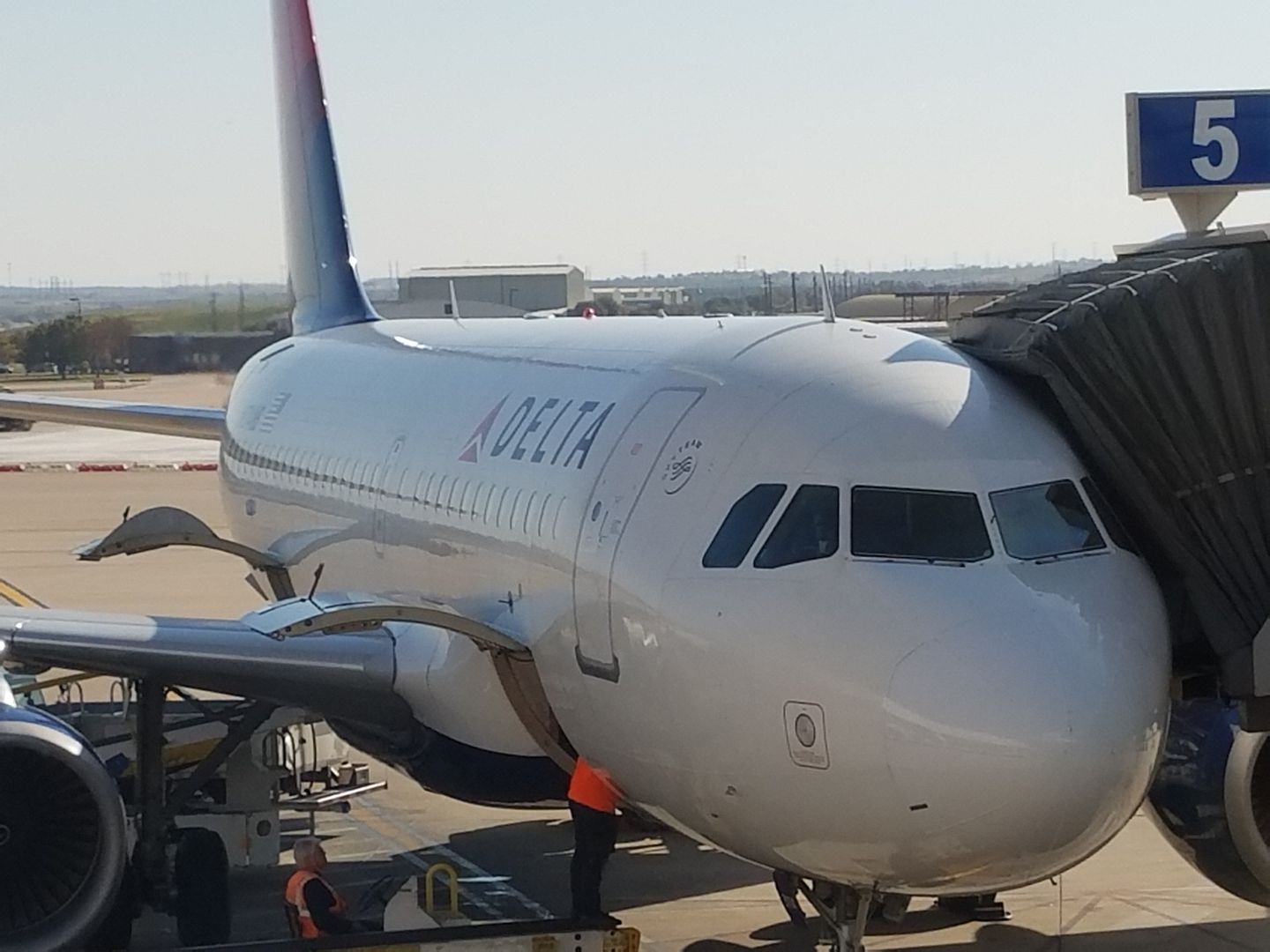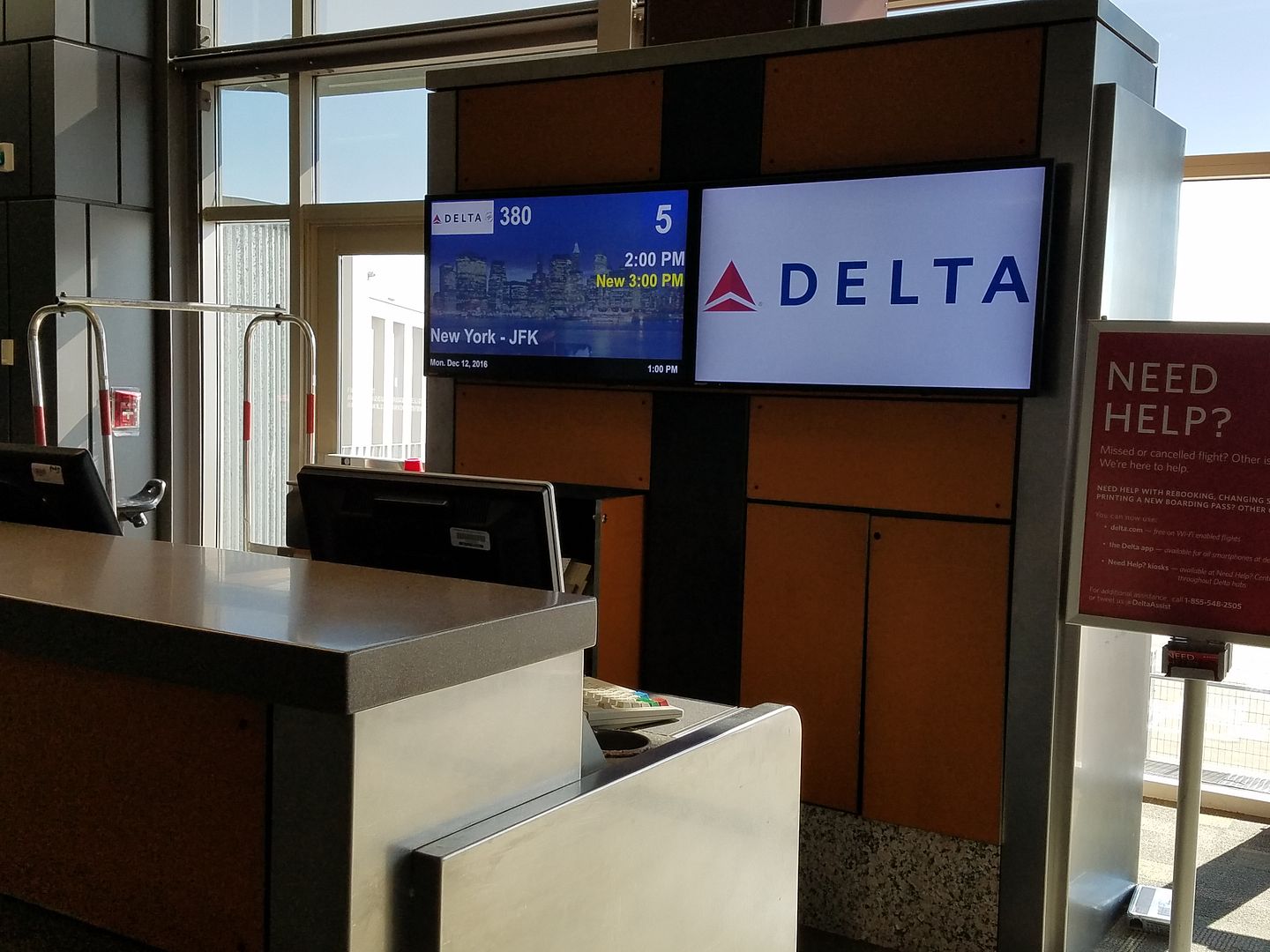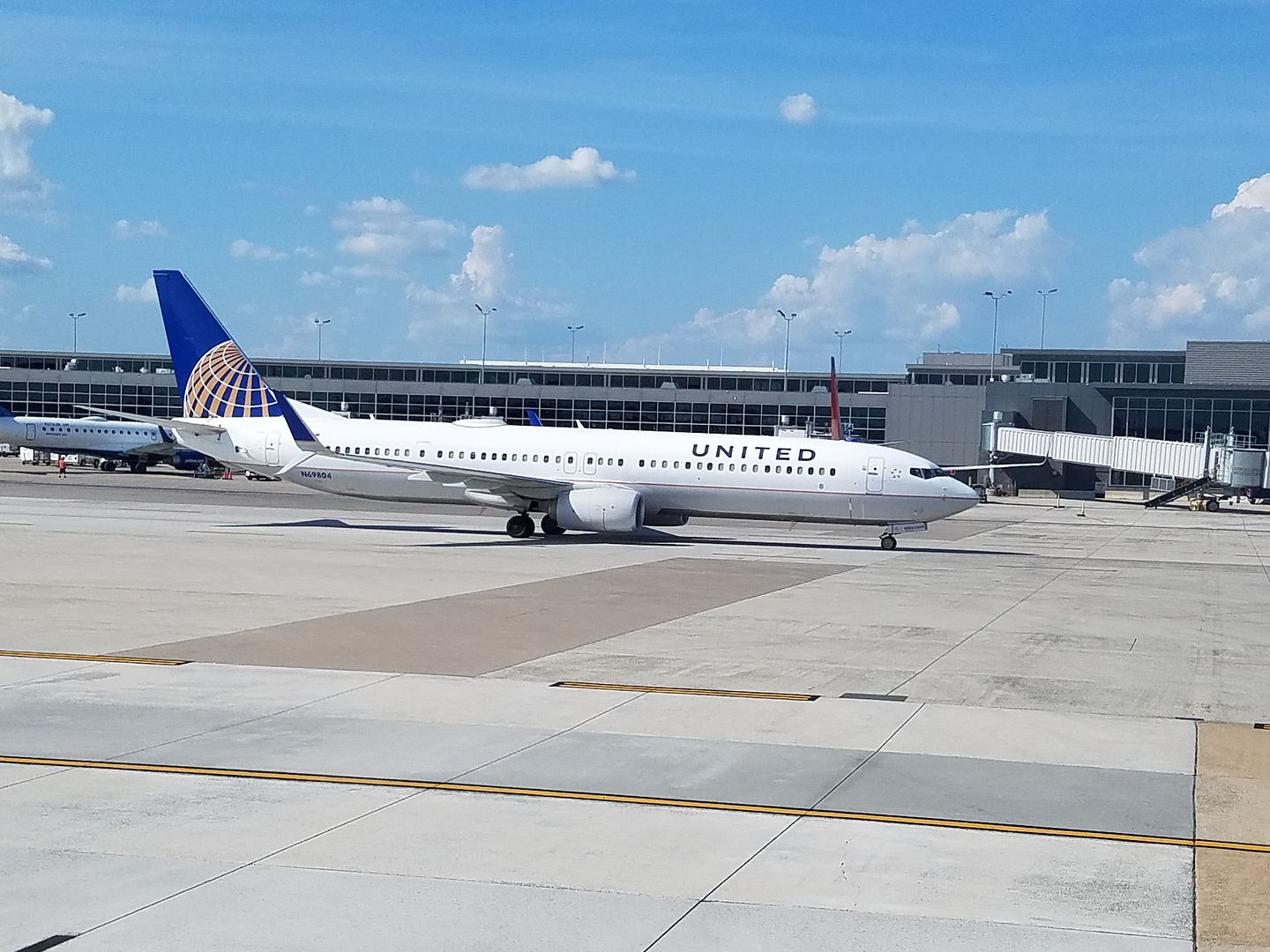If you ask the top leadership at American what airline they admire most, it’s Delta. Now that former American Airlines President Scott Kirby has taken the President job at United, the same can probably be said for United.
But they misunderstand the lessons of Delta, and blindly copy Delta moves assuming that if Delta does something — since they run the more profitable, better operation — it must be both right and best for their airline.

Three years ago Delta was willing to admit that the SkyMiles program wasn’t as strong as the rest of the airline, but they promised that their move to revenue-based would make even that ‘best in class’. With experience under their belt they don’t believe SkyMiles is a differentiator that contributes to the revenue premium they earn over their competitors.
Yet United almost immediately copied the Delta program, in some measure because former CEO Jeff Smisek ordered it. American was certainly going to adjust its program, but only rolled out a near-exact copy because of insistence by Kirby.
Delta has been willing to experiment and that’s one of the things that’s led to its success. SkyMiles was already a laggard so there was little risk changing it up. They were the first to roll out Basic Economy fares that don’t allow changes, seat assignments, or upgrades. But with three years of experience they consider it a role player, not a game changer for them.
[E]ven if you experience a 60% sell-up rate, which is slightly higher than we’ve experienced in the past, so let’s say 50% to make the math easy. On an average sell-up of $40, you’re not talking about a huge amount of money, I think it’s more of a competitive tool than it is a huge value driver in the long run.
Yet Scott Kirby somehow thinks it will contribute $250 million in incremental revenue for United this year.
Delta is well-positioned in New York because of its strength at JFK and the slot swap they did with US Airways, giving up some of their operation at Washington National. US Airways didn’t want to compete in the New York market. Even though Delta is slightly smaller than American at LAX, they’re best-positioned to grow because of a deal they did with the airport that includes spending money on expansion facilities.

United has the best-placed Asia hub in San Francisco, but Delta saw an opportunity in Seattle and they went after it aggressively. They own the Southeast out of Atlanta. They’re a tough competitor even with so-called friends like Alaska and Korean Air.
Now American and United are copying Delta’s Basic Economy, and doubling down to make it more punitive and less attractive. That makes Delta (and Southwest) the better airline to fly at the cheapest price point. And they’ve downgraded their marketing programs, which were differentiators, to be more like Delta. In other words, they’ve given up what little advantages they’ve had to swing consumer behavior and they’ve done so by choice. They’re re-commoditizing the product.

Their goal is to make their base product so unpleasant that no one will be willing to buy it — and therefore earn more profit.
The problem is customers may just as easily choose a product from another airline with a better product at the same price point – Delta, Southwest, or the soon more-competitive Alaska/Virgin America.
Surely those customers who do still buy what cheapest will have such a bad experience, from an airline that isn’t even the most reliable in the market, that they become less likely to return.
And taking away benefits of upgrades and even advance seat assignments from an airline’s best customers — who may buy international business class tickets for work and then the cheapest tickets the airline is selling on the weekend with their family — isn’t the way to encourage loyalty from those high margin customers. As I have said for years, business travelers are leisure travelers.
From a strategic perspective they’re not going to ‘win’ by trying to be more like, but not as effective as, Delta.


What you fail to realize is that in the nonstop markets where, say, AA is offering basic economy , the choice will be between AA and Spirit. Delta won’t be flying in that market, so it’s irrelevant if Delta’s product is slightly better than AA’s. I don’t know about you, but if the choice was between AA or Spirit, at the same price, I’m always going to pick AA.
I work in a far different industry but am amused at the similarities in Corporate Behavior.
The first thing that stands out is how hilariously infuriating the copycat mentality is. In my industry, the Retailers I call on look at their competitors who are out-performing them. Those competitors are doing 25 things differently that holistically all contribute to the customer’s perception and behavior in their stores. Yet my retailer myopically only recognizes 1 or 2 of those 25 behavioral differences and goes ALL IN on them. The net effect is the same as strapping a jet engine to your car because you want to go faster. That’s would be great…but only if you also converted the rest of your car to the specifications of a jet…and then year after year they pound their heads on the wall and blame anything and everything other than themselves for lost market share.
The other thought is that on the other side of the fence this feels like it could be more about indirect Oligopolistic behavior. Delta signals, United and American immediately jump onboard. I have long envisioned the collective Board Members all sitting in their respective high-rise offices, all looking down at Southwest with their both hands on their heads trying to will Southwest into recognizing what’s been laid out in front of them and jump in. Yes there are some smaller players out there, but with recent consolidation if Southwest jumped in I suspect that would cover the majority of the Market Share and the Oligopoly would be complete. Having already seen Southwest make incremental changes to devalue their rewards program, etc it feels like…I would describe my perception of them as “not incorruptible”.
Just my thoughts.
You hit the nail on the head, Gary. After being AA Plat for 3 years. I didn’t fly much last year. Had an opp. first week of the year and chose Delta. It’s a no-brainier almost. F
AA and UA are Delta puppets.
In classic Econ 101 class, you would know airlines are an oligopoly. Proven time and again.
Ah, the old Flight 19 syndrome. Mindlessly follow the leader until you wind up out of fuel and ditched in the sea.
Price-sensitive muppets don’t care about quality, or Spirit and Allegiant would already be out of business. UA recognized was smarter than DL to recognize that they could use stop the expensive avalanches of carry-ons onboard, and AA smartly copied.
Would not be surprised if DL catches on and bars carry-ons with those fares. Carry ons are valuable to customers and very expensive for the airline to handle, so to give them out for free at the cheapest fare is pure madness!
I hedge my Frequent Flyer programs with positions in airline stocks and crude oil ETF’s. I also own stock in Mastercard and Visa. I think I’m way ahead on a value basis. AA recently gave me a free First Class flight (as in no $ or points FREE) so I could position domestically for an international AA Award itinerary. Face value of that fare was $750 at the time. Do I have any complaints? Not a chance.
@Bruce you are in violation of VFTW rule #4: no math allowed unless you’re self-righteously quantifying a devaluation. Please delete your comment post haste.
UA should just fold or volunteer themselves to someone willing to take them out of their misery. Over booking, flight delays, bad service at the desk and inside the plane. The poor ladies at the desk in DC Reagan were lying and blaming the delay on the weather, and how they can’t change the weather. Now the poor ladies have to lie for you. UA will never be like Delta by any stretch. Then, I had to run through Chicago Ohare airport like a marathon participant with luggage and barely caught my flight to Ptld. They had already filled my seat with someone else. There were some old Grandmas coming from the March, could not run as fast, so they moved as fast as they could up and down the escalators with their luggage. I will never fly UA again. I will put it on social media to warn my friends….UA is completely un reliable, you are delivering a sub standard service to your customers, listen UA, if you want details pls write me; this has happened to me three times in less than 2 months! I know you are hustling trying to maximize profits but you may want to re-think your strategy. Overbooking and not allowing enough time between connections creates bad experiences for your customers. In Dec I missed a connecting flight from Europe to Africa, again with a plane delay sitting on the Newark NJ tamarc for over an hour waiting to take off. Connecting flight from Europe was long gone by the time I got there because you schedule your connecting flights too closely together, we have noticed this.
Back to your drawing board and bring back the UA carrier that used to be a premium experience, Retrain your staff and do the necessary to improve their morale, they need it.
We hate to leave you
With multimillion dollar bonuses at stake, do you think execs at AA and UA will do anything other than copy DL and then try to convince their boards (easy sell) and shareholders they deserve every penny if not more.
What I want to know is what was Kirby’s thinking when he asserted that going to a revenue- based ff program would result in more revenue for the airline. Does anyone have a clue on that? Gary?
In a business with oligopolistic tendencies (and MOST big businesses only have a handful of major players), it is often good business to copy your competitors. Remember the airline world without bag fees? Well, obviously, the airlines were going to make more money if they charged for bags (which was a very good thing because, at the time, they were losing billions). Lots of airlines wanted to charge. The problem is if you’re the first airline to charge for bags, your competitors will gain a HUGE competitive advantage if they don’t charge. You have to hope they’ll match and charge too. So it’s risky to be the first mover. On the other hand, it’s much less risky to be a follower. So while “thought leaders” may complain about “other airlines just being copycats,” being a copycat is often an EXCELLENT business strategy. I don’t see anything wrong with UA and AA studying DL’s experience in dealing with ultra low cost carriers and then tweaking that strategy. It actually seems pretty darn smart.
Don’t these guys have any ORIGINAL IDEAS? I mean Melina copied Michelle’s speach now Donald copied Obama’s cake even . Millions of dollars in pay for “lets do what they are doing” . In college that would get you an F —- FAILURE But these guys are getting the $$$$ and the Oval offices.
No wonder the US economy and job market sucks. The guys at the top can not come up with anything creative why would a 20 30 or 40 yr old do anything but sit back, play video games and collect a welfare / unemployment check.
Here’re a few things that UA/AA *should* copy from DL if they were serious about improving and competing on tangibles for better services/Ops: – rollover MQMs equivalent; – 20 min baggage guarantee (even if symbolic); – no close-in fees (esp AA, given that they are stingy with domestic awards now, whereas DL still opens up last-minute cheap-ish awards); phone app (UA is OK (old version was better for my taste), AA is still horrendous).. Then things like consistency in the gate and on-board experience, though that’s harder to measure….